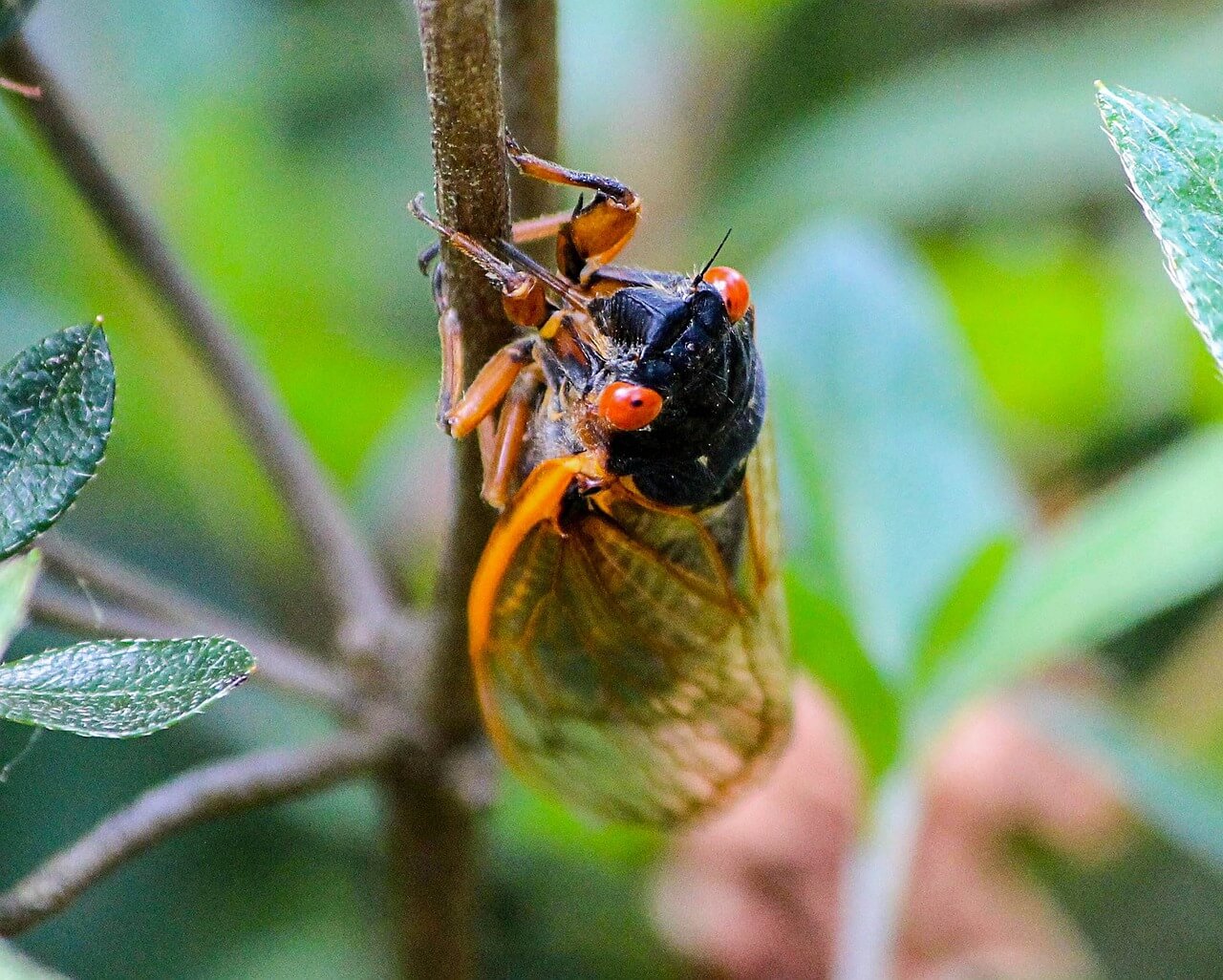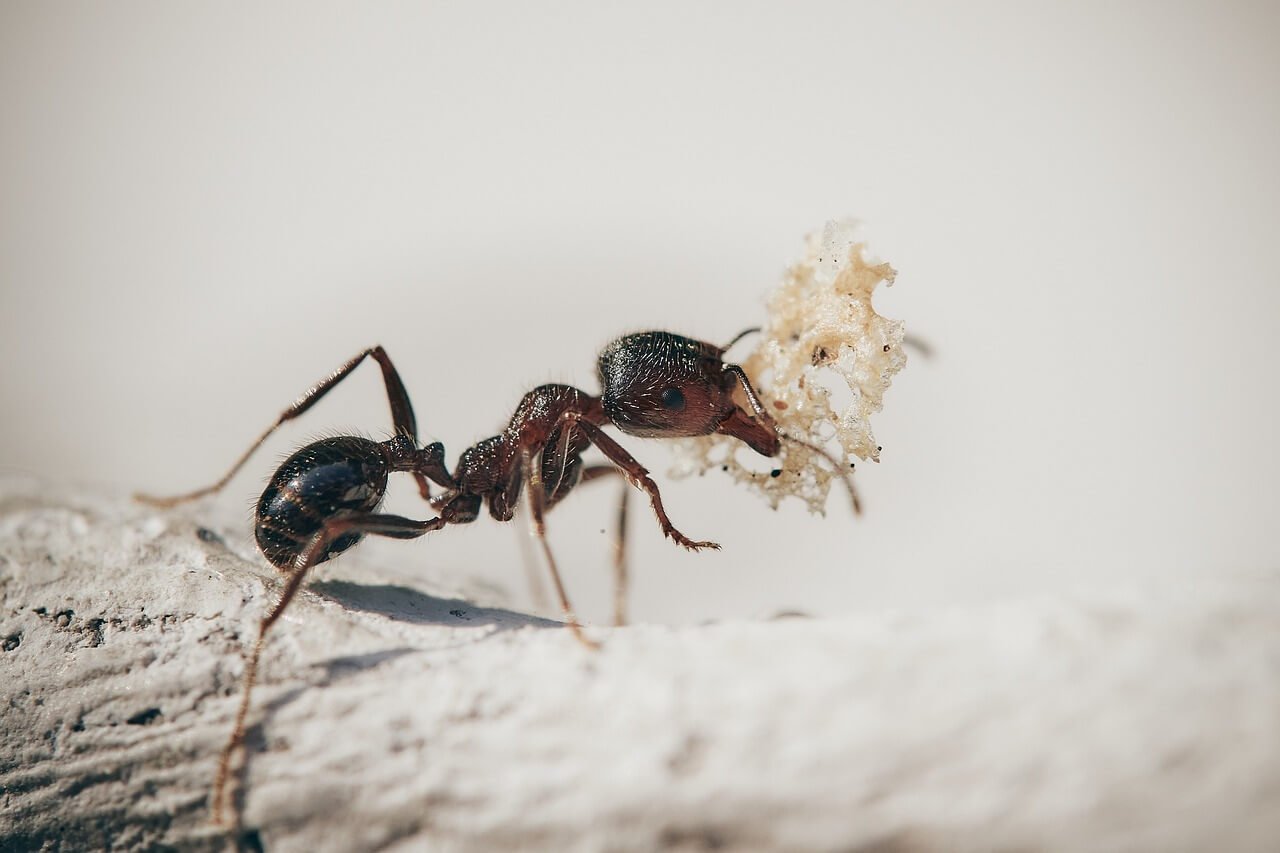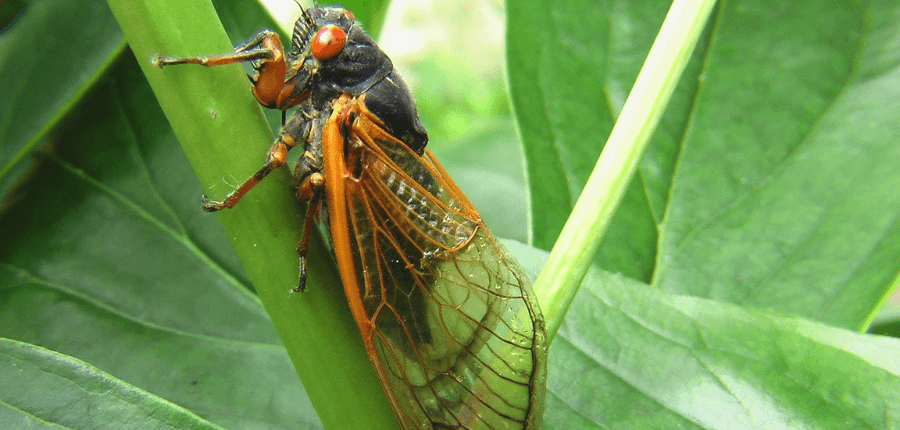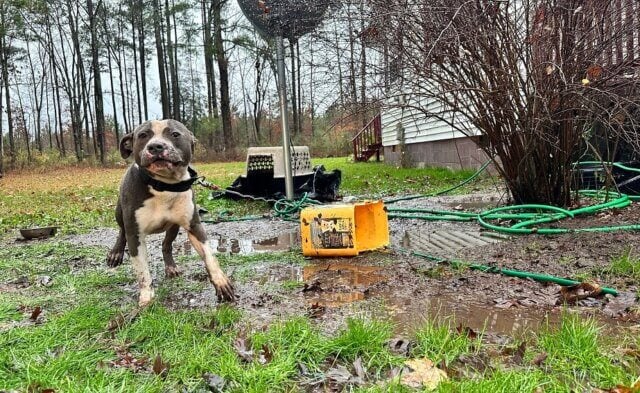The buzz (if you’ll pardon the pun) over the once-every-200-years double emergence of Brood XIX and Brood XIII cicadas slated for this spring made me wonder: How can an animal spend 13 to 17 years underground, know the precise time to surface and do just that to enjoy only a few weeks of flitting around having a love life (and perhaps catching up on Taylor Swift’s)? Turns out, cicadas are fascinating.
During those years spent subsurface, cicadas keep track of time by tasting the minute changes in root fluid that occur when trees blossom in the spring. They also measure the temperature of the soil: 64°F in emergence year means it’s “go” time. And despite having no vocal cords, just a small vibrating organ—the tymbal—these tiny insects produce sounds that can be heard more than a mile and a half away. The notes we usually hear are “sung” by males to woo potential mates. Ken would be proud.

Unlike Ken, cicadas are handy: Their burrowing aerates the ground. As females dig tiny trenches in branches to lay their eggs, they also prune the trees, resulting in more flowers and fruit. Uninterested in leaves or produce, they get their nutrients from tree and shrub sap. They generally don’t live long enough to do damage, but homeowners can protect small trees and shrubs by wrapping them with spun polyolefin. And when cicadas’ short lives are over, the exoskeletons they leave behind are excellent nitrogen- and potassium-rich, chemical-free fertilizer.
Pesticides don’t work on cicadas, but they harm other vital (and equally captivating) species, including endangered bees. These Lilliputian heroes are usually busy pollinating the plants we eat, even though people kill them and steal the honey they make to nourish their hives. And when they need to make an important decision, they vote on it. They’re polite, civil and able to reach an agreement. Ahem.
Don’t love weeds? Then you must love crickets. They eat the seeds of a variety of weed species and help break down organic matter, returning nutrients to the soil. Crickets are also clamorous communicators. We typically hear males chirping courtship songs to females. And even though females lack the wing structure needed to produce sounds, cricket mothers in areas with large spider populations have found an as-yet-unknown way to warn their unhatched babies about those eight-legged adversaries. (Not that crickets care, but spiders, I’ve learned, have distinct and varied personalities. And many of them are also remarkably devoted mothers.)
Ants offer a wide variety of lawn-care services, including aeration, fertilization and pollination, which isn’t surprising considering that these miniature animals have remarkably sophisticated social structures in which each individual has an important job. Leafcutter ants don’t actually eat leaves. They use them to grow a nutritious fungus that doesn’t exist on its own in nature. Only the ants know how to make it. Some ant species even use trigonometry to make calculations about different routes. I really wish I’d had an ant nearby when I was taking the SAT. (“If a train leaves Washington traveling 55 mph ….” No. No.)

Even the most maligned of insects, poo-rolling dung beetles, are impressive. They were worshipped by ancient Egyptians and viewed as an incarnation of the sun god Khepri, who was said similarly to roll the sun across the sky each day and bury it at night. Dung beetles can pull more than 1,100 times their own weight—the equivalent of a human pulling six double-decker buses. As dung beetles roll away and bury balls of poo, they perform free waste removal services, reduce greenhouse gas emissions and cut down on nitrogen runoff into waterways.
A landmark study published in 2006 estimated that the economic value of ecological services provided by insects in the U.S. is more than $86 billion annually, adjusted for inflation.
This spring and summer, as the wildlife concert outside grows to French Quarter–on-a-Saturday-night proportions, I hope people will remember that insects play a vital role in the ecosystem and will choose to live in harmony with them. I also hope they’ll consider that these intriguing animals’ time here is oh-so-fleeting and let them enjoy their brief lives in peace.





